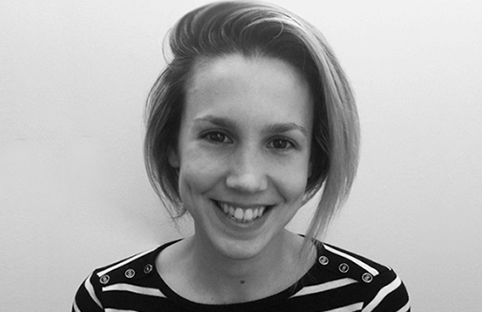There is an international commitment to involve people who do not have an academic role a greater role in science, in order to help generate impactful research and realize the European vision of science for the people, by the people.
Sara Marsillas

PhD in Psychology from the University of Santiago de Compostela in 2016, Master's Degree in Gerontology (2022) and Master's Degree in Organisational Psychology, Forensic Law and Social Intervention (2012). Award for Best Young Researcher in the area of social and behavioural sciences by the Spanish Society of Geriatrics and Gerontology (2018). Grant awarded by the Barrié Foundation for a stay abroad in 2015, in the Belgian Ageing Studies research group at the Vrije Universiteit Brussels. Between 2012 and 2015 she worked as a research professional in training and in 2016 as a postdoctoral researcher (USC-Psicom).
Her thesis project has consisted in the development of a validated measurement tool for active ageing from an individual point of view, referring to the dimensions that are important for individuals. During this period she has developed and participated in projects related to active ageing and its measurement or the use of new technologies by older people, among others. During the same period she has been trained in co-creation methodologies, such as Design Thinking.
She currently works as a researcher at the Matia Institute Foundation where she develops and participates in national and international projects related to loneliness, the emotional sphere, active and meaningful ageing combining research and co-creation methodologies.
Projects
Within the framework of the Lugaritz supported housing, Matia has launched the Lugaritz Living Lab project.
Population ageing is a great social achievement that poses challenges to ensure the welfare of this population in conditions of equality and sustainability, even more so after the COVID-19 crisis that has had such an impact on the elderly.
This longitudinal study will monitor the Basque population aged 70 and over residing in the community. It will examine the same people over an extended period of time to analyse the ageing process, assess changes, and understand the differences between the different groups.
Egiten ikasi aims to design and develop innovative and contrasted pedagogical resources, based on research and developed in co-creation processes, that favor the acquisition of attitudinal and instrumental competencies for care in the framework of ACP, to promote the advancement of this care appr
The carrying out of a specific survey on the living conditions of people aged 55 and over in the Basque Country allows the Basque Government to continue with successive previous studies on the reality of older people in this Autonomous Community.
SEE ME is an Erasmus + KA2 project which, through the development of a model and a set of training tools, aims to improve the quality of care and social inclusion of older people.
Developed societies are facing a new structuring of models of coexistence that generate a growing number of people living alone along their life paths.
The collaboration between Matia Instituto and Afundación began in 2017 with the aim of developing a specific action to address the emotional state of the elderly. This action was generated following a co-creation methodology focused on people with participants of the Espazos +60.
Investigación colaborativa
Propuesta de análisis tentativo de la influencia de la edad en relación con determinadas suposiciones o consecuencias asociadas con la crisis del coronavirus.
Publications
Participation in forums
Blog posts
Farmacia Lagunkoia is a program that was created within the framework of the Euskadi Lagunkoia project.
A few weeks ago, in this same blog, we reflected on a complex and nuanced phenomenon such as "loneliness", raising some questions that led us to carry out a study on this subject.
Loneliness is one of the great current issues, both from an academic and a social point of view.
Last week two of the Matia Institute's researchers, Elena del Barrio a
Webinars
Social exclusion is receiving increasing attention in the field of gerontology. This interest comes from a combination of the patterns of demographic aging, current social and economic instability, and the susceptibility of these age cohorts to growing inequalities.
Main reflections and findings of the study "Bakardadeak".
